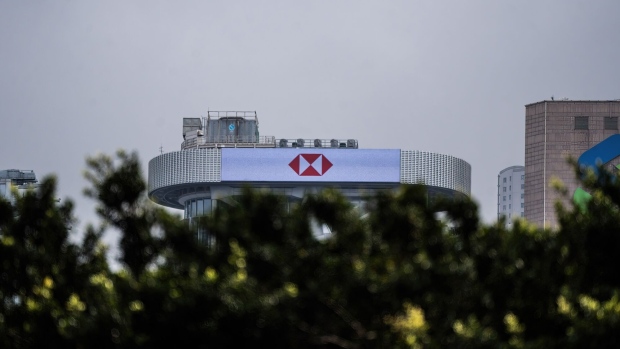Mar 28, 2024
HSBC Hong Kong Unit, Traders Indicted in Seoul Over Short Selling Claims
, Bloomberg News

(Bloomberg) -- HSBC Holdings Plc’s Hong Kong unit and three of its traders were indicted by South Korean prosecutors on allegations of illegal short selling.
The bank and traders allegedly conducted naked short selling worth 15.8 billion won ($11.8 million) in 2021, Yonhap News reported. Naked short selling, an act of selling shares without borrowing them first, is illegal in South Korea.
The Seoul Southern District Prosecutors’ Office, which has been investigating HSBC after financial regulators referred its preliminary findings, confirmed an indictment on its website after local reports, but didn’t name which bank was the target. The office didn’t immediately reply to requests for further comment.
“The Korean prosecutors’ arbitrary approach to indicting HSBC and individuals is unwarranted and disproportionate to the local regulatory findings,” HSBC said in a statement on Thursday. “We acknowledge unintentional breaches of the Korean short selling regulations, we took fast remedial action to address these, and we paid a fine to the Korean regulators of $5.6 million consequently. We will defend our position vigorously.”
Read more: Korea Said to Fine BNP, HSBC $20 Million for Naked Shorts
The indictment is the latest development in South Korea’s efforts to curb illegal short selling, which has become a hot political issue before parliamentary elections in April.
The country banned all types of short selling in November, responding to retail investors and others who say the trading tactic renders unfair advantages to foreign institutional investors. Naked short selling is “rampant” and must be rooted out to restore trust in the market, Kim So-young, vice chairman of the Financial Services Commission, said late last year in defending the ban.
The ban came as Korean authorities investigated global banks’ past short-selling transactions. In December, financial regulators imposed a fine of 26.5 billion won on BNP Paribas SA, its domestic brokerage unit, and HSBC for naked short selling. They also asked prosecutors to investigate them.
In April 2021, South Korea implemented new rules to impose punitive penalties on illegal short sellers, including at least a year in jail.
But prosecuting such cases in court could take years, and getting overseas traders to attend court hearings could prove challenging.
In 2011, South Korea indicted Deutsche Bank AG’s South Korean brokerage unit and some employees over stock manipulation, but some foreign employees never appeared in Korean courts.
In its statement, the prosecutors’ office said it plans to seek cooperation from overseas legal authorities to impose criminal penalties on senior executives involved.
©2024 Bloomberg L.P.





